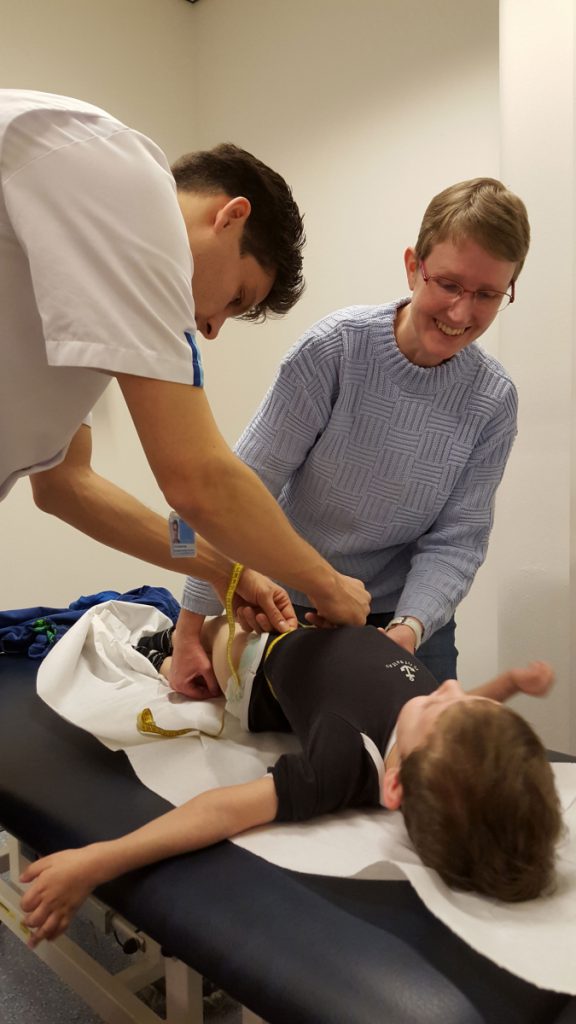Why are some cases more severe than others?
- Genetic mutation – even though it’s the same gene that’s affected, its mutation is different; and
- The amount of hormone able to pass inside the cells. The most severe cases are the ones in which not even the smallest amount of hormone is able to pass inside the cells.
How can you detect MCT8?
MCT8 Deficiency (AHDS) is an x-linked, genetic disorder (syndrome) and it is typically very hard to diagnose.
The earliest observed abnormalities, at around 2-3 months of age, include floppy body and lack of head control (the inability to support their head).
Typical thyroid tests that may indicate further research in this direction are high serum T3 and borderline low to low T4. Confirmation of the diagnosis requires genetic testing.

Who can diagnose?
Either a Pediatric Neurologist (due to the fact that it involves mental and motor delay) or Pediatric Endocrinologist (due to the fact that thyroid hormone tests abnormalities are characteristic for the syndrome)
The most common indicator is babies cannot support their heads. This is the first milestone that a typical child reaches at the age of 3 months old.
For children with MCT8-AHDS, this is something they may struggle with for the rest of their lives. In time they may develop spasticity in the superior and inferior members while the body remains affected by hypotonia.
Symptoms of MCT8 mutation include:
- Lack of head control
- Central hypotonia combined in most cases with peripheral hypertonia
- Intellectual disability
- Inability to gain and maintain weight
- Increased heart rate – related to thyrotoxicosis (toxicity from high T3 in the blood)
- Motor delay
- Low bone density – it is believed to be a symptom associated with high blood toxicity
- Epileptic seizures
- Delayed myelination
- Sleep problems
- Problems swallowing or problems chewing
- Dystonia
- Spasticity
- Low Immune system – Ascorbic acid
N.B. This answer has been created with the help of the online MCT8-AHDS community. Thank you all for sharing your knowledge and experience.

